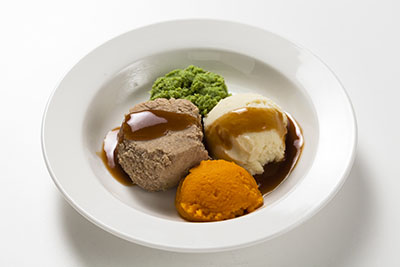




Click here to read "Feeding and Swallowing Disorders (Dysphagia) in Children" - from The American Speech and Hearing Association
According to the American Speech Hearing Association, dysphagia (difficulty swallowing & feeding) is defined as the ability to carry a solid, liquid, gaseous or mixed texture bolus from the mouth to the stomach keeping food and liquids out of the trachea, thanks to a combination of functions that stop food and liquid from entering the larynx; however, when there is weakness or impediment to the muscles of structures involved with the swallow mechanism, aspiration and aspiration pneumonia can occur. Aspiration occurs when a foreign debris or infiltrate enters the lungs via the trachea instead of the esophagus and can cause a serious condition known as aspiration pneumonia.
Aspiration pneumonia caused by dysphagia can affect infants, adults, geriatrics, and children with compromised immune systems. Dysphagia may be caused by factors such as poor dentition; acid reflux; stroke; progressive neurologic disorder; the presence of a tracheotomy tube; a paralyzed vocal fold; a tumor in the mouth, throat, or esophagus; or after cancer or surgery to the head, neck, or esophagus.
Often, a speech-language pathologist will work with this population either to help minimize the risk of a re-occurrence of aspiration pneumonia or screen, evaluate, and treat. A speech-language pathologist can assist the individual with dysphagia in preventing aspiration pneumonia by recommending dietary modifications and/or special exercises to help coordinate the swallowing muscles. The speech-language pathologist can help minimize the risk of frequent re-occuring hospitalizations secondary to the development of aspiration pneumonia by recommending oral-care strategies, the safest, least-restrictive diet texture, assisting the individual and caregiver in monitoring for signs and symptoms of aspiration, as well as counseling as well as patient-caregiver education. Many swallowing disorders may be helped by swallowing therapy provided by a speech-language pathologist.



Click here to read "Feeding and Swallowing Disorders (Dysphagia) in Children" - from The American Speech and Hearing Association

According to the American Speech Hearing Association, dysphagia (difficulty swallowing & feeding) is defined as the ability to carry a solid, liquid, gaseous or mixed texture bolus from the mouth to the stomach keeping food and liquids out of the trachea, thanks to a combination of functions that stop food and liquid from entering the larynx; however, when there is weakness or impediment to the muscles of structures involved with the swallow mechanism, aspiration and aspiration pneumonia can occur. Aspiration occurs when a foreign debris or infiltrate enters the lungs via the trachea instead of the esophagus and can cause a serious condition known as aspiration pneumonia.

Aspiration pneumonia caused by dysphagia can affect infants, adults, geriatrics, and children with compromised immune systems. Dysphagia may be caused by factors such as poor dentition; acid reflux; stroke; progressive neurologic disorder; the presence of a tracheotomy tube; a paralyzed vocal fold; a tumor in the mouth, throat, or esophagus; or after cancer or surgery to the head, neck, or esophagus.

Often, a speech-language pathologist will work with this population either to help minimize the risk of a re-occurrence of aspiration pneumonia or screen, evaluate, and treat. A speech-language pathologist can assist the individual with dysphagia in preventing aspiration pneumonia by recommending dietary modifications and/or special exercises to help coordinate the swallowing muscles. The speech-language pathologist can help minimize the risk of frequent re-occuring hospitalizations secondary to the development of aspiration pneumonia by recommending oral-care strategies, the safest, least-restrictive diet texture, assisting the individual and caregiver in monitoring for signs and symptoms of aspiration, as well as counseling as well as patient-caregiver education. Many swallowing disorders may be helped by swallowing therapy provided by a speech-language pathologist.